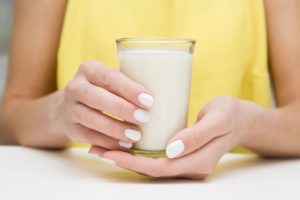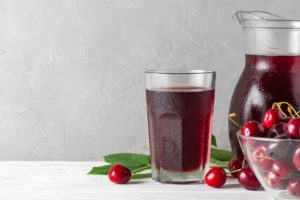What Is Tryptophan?
- Tryptophan is an essential amino acid found in various foods, including turkey.
- Tryptophan can influence mood and sleep by affecting serotonin and melatonin production.
- While tryptophan may promote relaxation, overall diet and lifestyle greatly affect sleep quality.
- Avoid overeating and limit your alcohol intake to prevent sleepiness during the holidays.
If you’ve been looking into what helps people sleep, you may have come across tryptophan at some point. Tryptophan is an essential amino acid, which means the human body requires it and people must consume it through food. We explore what tryptophan does in the body, how it relates to sleep, which foods contain tryptophan, and if tryptophan supplements are safe.
Does Tryptophan Make You Sleepy?
Research suggests that consuming tryptophan can help people fall asleep faster and improve sleep quality. That said, tryptophan isn’t likely to cause a person to need an immediate nap, despite the lore surrounding tryptophan-containing Thanksgiving turkey.
Sleep-related studies involving tryptophan generally look at how tryptophan consumption affects a person’s nighttime sleep, since tryptophan isn’t known to typically make people feel immediately tired. Some tryptophan research involves giving people tryptophan-rich foods, while other studies involve giving people tryptophan supplements.
Tryptophan likely contributes to good sleep because the body uses it to make serotonin, a neurotransmitter. Serotonin helps regulate sleep and is used to create melatonin, a sleep-promoting hormone. As with tryptophan, foods that contain melatonin or serotonin have been found to promote better sleep.
What Foods Contain Tryptophan?
Multiple foods contain tryptophan, including:
Meat
Meats and poultry contain the most tryptophan of all foods. Lamb shoulder roast contains the most tryptophan of all meats, with one serving providing 252% of the reference daily intake. Other meats high in tryptophan include pork chops, pork tenderloin, skirt steak, ground pork, chuck steak, roasted ham, and ribeye steak.
Poultry
Poultry, like chicken and turkey, are well-known for containing tryptophan. One roasted chicken leg contains 249% of the reference daily intake. Other poultry items high in tryptophan include lean chicken breast, ground turkey, roast goose, and boneless skinless chicken leg.
Dairy
Dairy and egg products, like cheese, milk, and egg whites, contain tryptophan. Of these, a glass of high-fat milk contains the most, providing 80% of the reference daily intake of tryptophan. Other dairy items high in tryptophan include skim milk, 1% milk, whole milk, cottage cheese, ricotta cheese, and mozzarella cheese. One large egg also contains about 30% of the reference daily intake of tryptophan.
Fish
Sockeye salmon is the fish containing the most tryptophan, providing 203% of the reference daily intake. Other types of fish high in tryptophan include bluefin tuna, grouper, yellowfin tuna, whelk, wild-caught coho or Atlantic salmon, snapper, yellowtail, Northern pike, cod, mackerel, and tilapia.
Nuts and seeds
Many nuts and seeds contain tryptophan. Those highest in it include pumpkin seeds, chia seeds, sesame seeds, hemp seeds, sunflower seeds, black walnuts, flax seeds, cashews, pistachios, and peanuts.
Grains
Oats, oat bran, and buckwheat are the highest in tryptophan, providing over 100% of the daily reference index amount. Grains that contain lower amounts of tryptophan include sorghum, teff, quinoa, and whole wheat.
Beans
Soybeans are the beans highest in tryptophan, with edamame and tofu both containing more than 100% of the daily reference index amount. Other beans high in tryptophan include navy beans, white beans, canned baked beans, kidney beans, and pinto beans.
Are Tryptophan Supplements Safe?
Some studies have found that tryptophan supplements may improve a person’s quality of sleep and reduce anxiety. However, the research on tryptophan supplements for sleep is limited. Talk to a doctor before beginning tryptophan in order to determine if it’s safe for you, and what dose you should take.
Taking tryptophan in excess of levels naturally found in food may be unsafe for people who are pregnant or breastfeeding. Tryptophan can also majorly interact with sedatives or nervous system depressants, causing excessive tiredness. Tryptophan impacts serotonin levels, so it can also interact with any medications that affect serotonin. Experts recommend avoiding tryptophan with supplements containing hops, kava, melatonin, valerian, 5-HTP, black seed, SAMe, or St. John’s wort.
The U.S. Food and Drug Administration (FDA) banned tryptophan supplements in the U.S. after a related illness outbreak in 1988 and 1989. The FDA lifted the ban in 2001, after determining the previous supplements all came from the same manufacturer and the ill effects were caused by their manufacturing process. Since then, research hasn’t found any major safety issues with tryptophan supplements.
What Are the Potential Side Effects of Tryptophan?
Most research studies haven’t found major side effects from taking tryptophan supplements. However, some side effects may occur.
- Dizziness
- Tiredness
- Dry mouth
- Headache
- Nausea
- Stomachache
- Vomiting
- Diarrhea
- Loss of appetite
- Blurry vision
Medical Disclaimer: The content on this page should not be taken as medical advice or used as a recommendation for any specific treatment or medication. Always consult your doctor before taking a new medication or changing your current treatment.
References
7 Sources
-
Roth, W., Zadeh, K., Vekariya, R., Ge, Y., & Mohamadzadeh, M. (2021). Tryptophan Metabolism and Gut-Brain Homeostasis. International journal of molecular sciences, 22(6), 2973.
https://pubmed.ncbi.nlm.nih.gov/33804088/ -
Binks, H., E Vincent, G., Gupta, C., Irwin, C., & Khalesi, S. (2020). Effects of Diet on Sleep: A Narrative Review. Nutrients, 12(4), 936.
https://pubmed.ncbi.nlm.nih.gov/32230944/ -
Nutrient Ranking Tool. (2024). MyFoodData.
https://tools.myfooddata.com/nutrient-ranking-tool/tryptophan/all/highest/household/common/no -
A.D.A.M. Medical Encyclopedia. (2022, February 4). Tryptophan. MedlinePlus.
https://medlineplus.gov/ency/article/002332.htm -
A.D.A.M. Medical Encyclopedia. (2023, May 12). L-Tryptophan. MedlinePlus.
https://medlineplus.gov/druginfo/natural/326.html -
Richard, D. M., Dawes, M. A., Mathias, C. W., Acheson, A., Hill-Kapturczak, N., & Dougherty, D. M. (2009). L-Tryptophan: Basic Metabolic Functions, Behavioral Research and Therapeutic Indications. International journal of tryptophan research : IJTR, 2, 45–60.
https://pubmed.ncbi.nlm.nih.gov/20651948/ -
Friedman M. (2018). Analysis, Nutrition, and Health Benefits of Tryptophan. International journal of tryptophan research : IJTR, 11, 1178646918802282.
https://pubmed.ncbi.nlm.nih.gov/30275700/






















